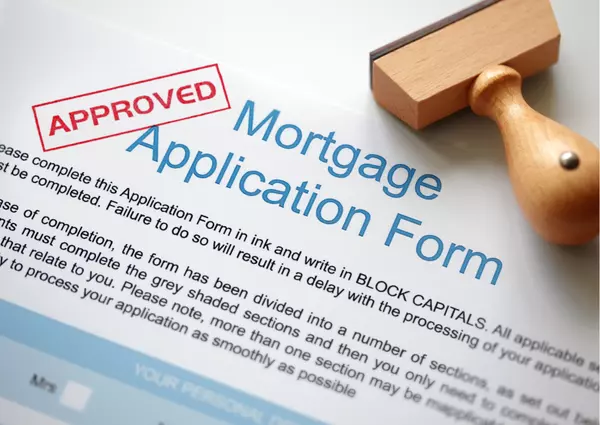Things You Should Never, Ever Say If You Hope to Sell Your Home
Have you ever found yourself in a situation where you regretted something you said during a conversation with a stranger? If you're planning to sell your house or condo, you'll inevitably find yourself engaging with potential buyers. While your real estate agent will handle most of the communication, you may still encounter buyers who are curious about the property's background, condition, and more. In light of that, let's explore four statements you should avoid making when speaking to potential homebuyers.
"We're Not Accepting Offers Less Than…"
One effective method to potentially sabotage your sale and discourage potential buyers is by setting a minimum price threshold for bids and offers. Even if your asking price is fair, this approach may alienate buyers who feel compelled to offer above a predetermined price. Unless advised otherwise by your agent, it is advisable to let buyers feel empowered and in charge of the offer process. You can always counter-offer at a later stage if needed.
"Our House Has Been On The Market For…"
If there were any repairs, improvements, or cleaning tasks to be done in your home, it's likely you would have taken care of them before inviting potential buyers in. Your objective is to showcase your house in the most favorable way possible. It's best to refrain from highlighting areas that a buyer might need to renovate or invest in later on.
"We Need To Close The Sale By…"
The last thing you want is to appear desperate to sell and move on. Buyers and their agents are observant, searching for any signs of weakness that may lead them to submit low-ball offers for your home. If you reveal that you have a pressing deadline or an urgent need to sell, it's highly likely that you won't receive the best possible price for your property.
These are just four of the many things you should avoid saying to potential buyers. For additional tips and guidance on selling your home, feel free to reach out to our professional real estate team. We're here to assist you.
Real Estate 101: What Is a Short Sale and How Does It Work? Let's Take a Look
a short sale occurs when a homeowner sells their property for less than what they owe on their mortgage, with the lender's approval. This is often used as an alternative to foreclosure and can be a complex process, but it can benefit all parties involved in the right circumstances.
Here's a closer look at what a short sale is and how it works:
What is a short sale?
A short sale happens when a homeowner sells their home for less than the outstanding balance on their mortgage. For example, if a homeowner owes $300,000 on their mortgage but can only sell the home for $250,000, they would be short $50,000. In order to proceed with the sale, the lender must approve the lower offer.
Why do homeowners opt for a short sale?
Homeowners may opt for a short sale when they're unable to keep up with their mortgage payments and owe more on their home than it's worth. A short sale can be a way to avoid foreclosure, which can be a lengthy and costly process for both the homeowner and the lender. It can also be less damaging to the homeowner's credit score than a foreclosure.
How does the short sale process work?
The short sale process can be complicated and typically involves the following steps:
The homeowner hires a real estate agent who specializes in short sales.
The homeowner and their agent put the property up for sale and begin marketing it to potential buyers.
When a buyer makes an offer, the homeowner and their agent submit a short sale package to the lender. This package includes financial information, a hardship letter explaining why the homeowner is unable to pay their mortgage, and the purchase contract from the buyer.
The lender reviews the short sale package and decides whether or not to approve the sale.
If the sale is approved, the homeowner can sell the property to the buyer for the approved price, and the lender will release the lien on the property.
What are the benefits of a short sale?
A short sale can benefit all parties involved in the right circumstances. For the homeowner, it can help avoid foreclosure and can be less damaging to their credit score. For the lender, it can help them avoid the lengthy and costly foreclosure process. For the buyer, a short sale can offer the opportunity to purchase a home at a lower price than they might otherwise be able to afford.
However, it's important to note that a short sale is not always the best option for everyone. It's important for homeowners to consult with a financial advisor or attorney to determine whether a short sale is the right choice for their situation.
In conclusion, a short sale is a real estate transaction where a homeowner sells their property for less than the outstanding balance on their mortgage, with the lender's approval. It can be a complex process, but it can benefit all parties involved in the right circumstances. If you're considering a short sale, it's important to work with a real estate agent who specializes in short sales and to consult with a financial advisor or attorney to determine whether it's the right choice for your situation.
3 Ways to Win Without Busting Through Your Mortgage Approval Amount
3 Ways to Win Without Busting Through Your Mortgage Approval Amount!
Are you looking to buy a home but worried about busting through your mortgage approval amount? You're not alone. Many homebuyers face this challenge, but there are ways to win without breaking the bank. In this post, we'll explore three tips for staying within your mortgage approval amount and still getting the home of your dreams.
Start by setting a budget
Before you even start looking at homes, it's essential to set a budget. This will help you determine what you can afford and what you can't. Take a hard look at your finances and figure out how much you can comfortably afford to spend each month on your mortgage payment. Be sure to include all other expenses such as property taxes, insurance, and any other monthly expenses that may be associated with owning a home.
Look for homes that need a little TLC
Another way to stay within your mortgage approval amount is to consider homes that need a little work. Homes that need a bit of TLC can often be purchased at a lower price point, allowing you to stay within your budget. Plus, you can customize the home to your liking and potentially add value over time.
Negotiate with the seller
Finally, don't be afraid to negotiate with the seller. If you've found a home you love but it's just out of your price range, try negotiating with the seller. They may be willing to come down on the price or offer some other concessions that can help you stay within your mortgage approval amount.
In conclusion, there are several ways to win without busting through your mortgage approval amount. By setting a budget, looking for homes that need a little work, and negotiating with the seller, you can find a home that fits your needs and your budget. Good luck on your home-buying journey!
If you have questions, feel free to contact me at
Jenn.g.miller19@gmail.com or at 850-490-5744
𝗦𝗵𝗼𝘂𝗹𝗱 𝗬𝗼𝘂 𝗚𝗲𝘁 𝗮 𝗛𝗼𝗺𝗲 𝗜𝗻𝘀𝗽𝗲𝗰𝘁𝗶𝗼𝗻 𝗕𝗲𝗳𝗼𝗿𝗲 𝗦𝗲𝗹𝗹𝗶𝗻𝗴 𝗬𝗼𝘂𝗿 𝗛𝗼𝗺𝗲?
𝗦𝗵𝗼𝘂𝗹𝗱 𝗬𝗼𝘂 𝗚𝗲𝘁 𝗮 𝗛𝗼𝗺𝗲 𝗜𝗻𝘀𝗽𝗲𝗰𝘁𝗶𝗼𝗻 𝗕𝗲𝗳𝗼𝗿𝗲 𝗦𝗲𝗹𝗹𝗶𝗻𝗴 𝗬𝗼𝘂𝗿 𝗛𝗼𝗺𝗲?
If you're thinking about putting your home on the market, you may be wondering whether it's time to upgrade or make some changes. Should you paint, renovate the bathroom, or finish the basement to make it a suite? However, before making any renovations, it's essential to know how your home has fared over time. It might be useful to consider getting a professional home inspection done before selling your home. Here are a few reasons why.
Assessing Your Home's Current Condition
Give some thought to your home's current condition. How old is it? When was its last professional inspection? Has your home suffered any significant weather or other kinds of damage? Take a walk around and look at the key structural areas. Do you see any issues with the roof? How do the walls or siding look? Are there visible cracks in the home's foundation? If there are obvious issues, it is time for an inspection.
Do You Need A Speedy Sale?
Another excellent reason to get your home inspected early in the selling process is that it's likely to speed things along. If there are any repairs required, you can have them taken care of before you start staging your home, having professional photos taken and hosting open houses.
A recent inspection can also give you a competitive edge over nearby or similar homes that are for sale. It signals to potential buyers that you have done some of the heavy lifting in the process and that they are unlikely to uncover any major issues when they have their own inspection done.
Take Care Of 'Deal Breaker' Problems
Finally, a home inspection ensures that you will be able to take care of any potential deal-breaking issues that could ruin a sale. Even if you decide to skip repairing some of the minor issues, taking care of things like cracks in your foundation, mold problems or old electrical wiring will all help with keeping your sale on track.
These are just a few of the great reasons to invest in a professional home inspection before listing your home for sale. To learn more about the home selling process or to get started, contact us today. Our listing team is happy to share our experience to ensure that your selling process moves along quickly.
If you have questions, feel free to contact me at
Jenn.g.miller19@gmail.com or at 850-490-5744

Jennifer Miller
Phone:+1(850) 490-5744




